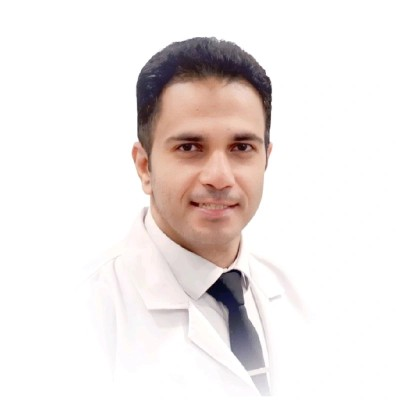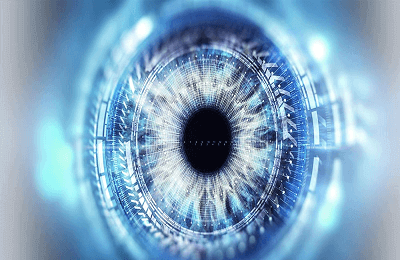Session 01: Ophthalmology
Ophthalmology is the medical specialty dedicated to the diagnosis, treatment, and prevention of eye diseases and disorders. It covers a broad spectrum of conditions, including refractive errors, cataracts, glaucoma, retinal diseases, and macular degeneration. Ophthalmologists utilize advanced diagnostic tools, surgical techniques, and cutting-edge treatments to manage eye health, enhance vision, and improve the quality of life for patients, addressing both common and complex ocular conditions.
Session 02: Vision Science
Vision Science is an interdisciplinary field that studies the mechanisms of vision, from the biology of the eye to the neural processes that interpret visual information. It combines elements of biology, physics, psychology, and neuroscience to understand how we see and perceive the world. Vision science drives advancements in eye care, improving treatments for conditions like amblyopia, retinal diseases, and visual disorders, and helps develop technologies like prosthetics and vision restoration therapies.
Session 03: Glaucoma: A Vision Loss
Glaucoma is a group of eye diseases that damage the optic nerve, often due to increased intraocular pressure, leading to progressive vision loss. It is one of the leading causes of blindness worldwide, typically affecting peripheral vision first. Early detection and treatment, including medications, laser therapy, or surgery, can help manage the condition and prevent further damage. Regular eye exams are crucial for those at risk, as glaucoma often has no early symptoms.
Session 04: Retina and Retinal Detachment
The retina is the light-sensitive layer at the back of the eye responsible for converting light into nerve signals, which are sent to the brain for visual processing. Retinal detachment occurs when the retina pulls away from its underlying tissue, leading to vision loss. It is a medical emergency, often caused by tears, trauma, or fluid buildup. Prompt treatment, usually through surgery, can restore vision and prevent permanent damage.
Session 05: Cornea Disorders and Treatments
Cornea disorders can affect vision and may include conditions like keratoconus, corneal dystrophies, infections, or injuries. Treatment options depend on the severity, ranging from glasses or contact lenses for mild cases to corneal transplants or laser surgery for advanced conditions. Early diagnosis and proper management are crucial to preserving vision. Regular eye exams help detect issues early, ensuring effective treatment and minimizing vision loss.
Session 06: Ocular Oncology
Ocular oncology focuses on the diagnosis and treatment of eye cancers, including melanoma, retinoblastoma, and lymphoma. Symptoms may include vision changes, eye pain, or unusual growths. Treatment options depend on the type and stage of cancer, ranging from surgery and radiation to chemotherapy or targeted therapies. Early detection and intervention are key to improving outcomes and preserving vision. Regular eye exams help identify potential issues promptly.
Session 07: Pediatric Ophthalmology
Pediatric ophthalmology specializes in diagnosing and treating eye conditions in children, such as amblyopia (lazy eye), strabismus (crossed eyes), refractive errors, and congenital cataracts. Early detection is crucial for preventing long-term vision problems. Treatment options may include glasses, patches, eye exercises, or surgery, depending on the condition. Regular eye exams are recommended for children to ensure healthy visual development and address any issues promptly.
Session 08: Dry Eye and Keratoconus
Dry eye occurs when the eyes don't produce enough tears or the tears evaporate too quickly, causing irritation, redness, and blurry vision. Treatment includes artificial tears, lifestyle changes, or medications.
Keratoconus is a progressive condition where the cornea thins and bulges, leading to distorted vision. Early intervention with glasses or contact lenses can help, while advanced cases may require treatments like corneal crosslinking or a corneal transplant. Regular monitoring is essential for both conditions.
Session 09: Neuro-Ophthalmology
Neuro-ophthalmology focuses on the relationship between the nervous system and eye health, diagnosing conditions like optic neuritis, papilledema, and eye movement disorders. It also addresses visual disturbances related to neurological diseases such as stroke, multiple sclerosis, or brain tumors. Treatment varies depending on the underlying cause and may involve medications, surgery, or rehabilitation. Early diagnosis and collaboration with neurologists are vital for effective management and preserving vision.
Session 10: Ophthalmology Surgery
Ophthalmology Surgery addresses a range of eye conditions, including cataracts, glaucoma, retinal disorders, and corneal issues. Common procedures include cataract surgery, LASIK for refractive errors, retinal detachment repair, and corneal transplants. Minimally invasive techniques, such as laser treatments, are often used for precision and faster recovery. Early surgical intervention can prevent vision loss and improve eye health, with recovery times varying based on the procedure and individual healing.
Session 11: Diabetic Retinopathy
Diabetic Retinopathy is a complication of diabetes that affects the blood vessels in the retina, leading to vision problems. Early stages may cause no symptoms, but as it progresses, it can result in blurry vision, floaters, and even blindness. Treatment includes controlling blood sugar, laser therapy, injections, or surgery to prevent further damage. Regular eye exams are crucial for early detection and effective management to preserve vision.
Session 12: Refractive Surgery
Refractive Surgery corrects vision problems like nearsightedness, farsightedness, and astigmatism by reshaping the cornea. Common procedures include LASIK, PRK, and SMILE. These surgeries reduce dependence on glasses or contact lenses and offer quick recovery with minimal discomfort. Candidates must have stable vision and healthy eyes. Regular pre-surgical assessments ensure the best outcomes, and results can last for years, although some may require enhancements over time.
Session 13: Strabismus
Strabismus, or crossed eyes, occurs when the eyes are not aligned properly, causing one or both eyes to turn in, out, up, or down. It can lead to double vision or depth perception issues. Treatment options include corrective glasses, vision therapy, or surgery to realign the eyes. Early diagnosis and treatment are essential for preventing amblyopia (lazy eye) and improving visual function and appearance. Regular eye exams are important for detection.
Session 14: Uveitis
Uveitis is inflammation of the uvea, the middle layer of the eye, which can cause pain, redness, blurred vision, and light sensitivity. It may result from infections, autoimmune disorders, or trauma. Treatment typically involves corticosteroids or other anti-inflammatory medications to reduce swelling and prevent vision loss. Early diagnosis and proper management are crucial for preserving vision and preventing complications such as glaucoma or cataracts. Regular eye exams are essential for monitoring.
Session 15: Optical Technologies and Laser Science in Ophthalmology
Optical Technologies and laser science have revolutionized ophthalmology, enabling precise diagnosis and treatment. Techniques like OCT (Optical Coherence Tomography) provide detailed retinal imaging, while lasers are used in procedures like LASIK, retinal photocoagulation, and cataract surgery. These technologies enhance accuracy, minimize invasiveness, and improve recovery times. Advancements in optical biometrics and laser treatments continue to drive innovations, improving outcomes for conditions like refractive errors, glaucoma, and retinal diseases.
Session 16: Conjunctivitis
Conjunctivitis, or pink eye, is the inflammation of the conjunctiva, often caused by viral or bacterial infections, allergens, or irritants. Symptoms include redness, itching, discharge, and sensitivity to light. Treatment depends on the cause—viral cases typically resolve on their own, while bacterial infections may require antibiotics. Allergic conjunctivitis is managed with antihistamines or eye drops. Good hygiene and timely treatment help prevent complications and reduce the spread of infection.
Session 17: Cataract
A cataract is the clouding of the eye's natural lens, leading to blurry or dim vision. It commonly develops with age but can also result from injury, diabetes, or medication use. Symptoms include difficulty seeing at night, sensitivity to light, and faded colors. Cataract surgery, which involves removing the cloudy lens and replacing it with an artificial one, is a safe and effective treatment, restoring clear vision for most patients.
Session 18: Macular Degeneration
Macular degeneration is a leading cause of vision loss in older adults, affecting the central part of the retina (macula). It causes blurred or distorted central vision, making tasks like reading and driving difficult. There are two types: dry, which progresses slowly, and wet, which involves abnormal blood vessel growth. While there's no cure, treatments like injections, laser therapy, and lifestyle changes can help slow progression and preserve remaining vision.
Session 19: Latest Equipment’s Used for Ophthalmology Surgeries
Recent advancements in ophthalmic surgery are driven by cutting-edge equipment for enhanced precision and faster recovery. Notable tools include femtosecond lasers for cataract surgery, optical coherence tomography (OCT) for real-time imaging, and the LenSx laser for precise corneal and lens procedures. Robotic-assisted systems and 3D visualization also improve surgical accuracy. These technologies minimize invasiveness, reduce complications, and improve patient outcomes in procedures like LASIK, retina surgery, and corneal transplants.












